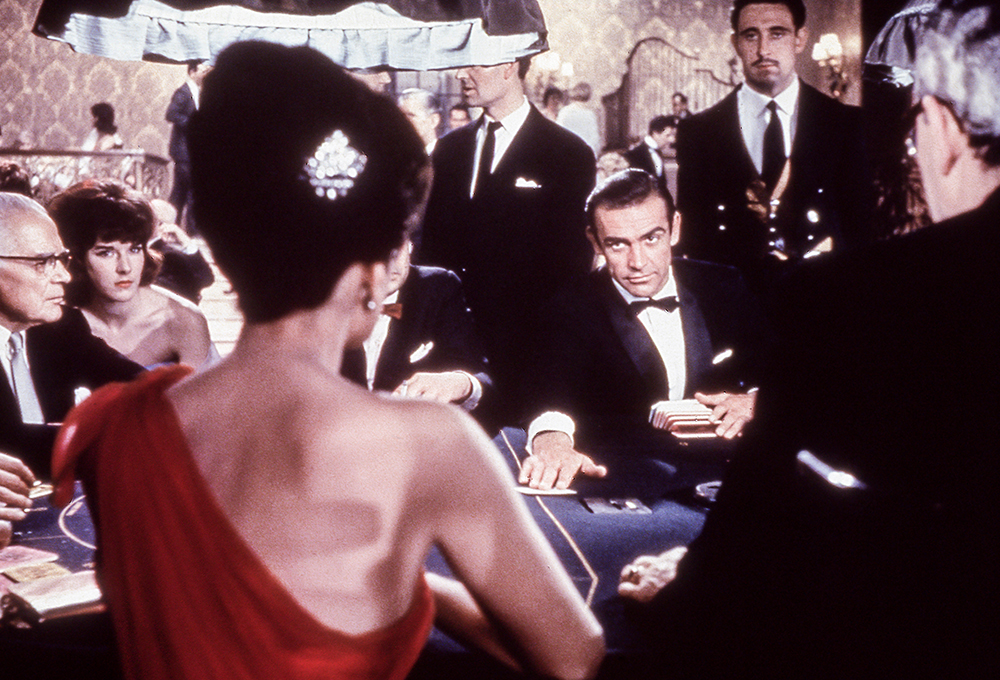
I was listening to the actor Alex Jennings reading the bit in Casino Royale – broadcast on the novel’s 70th birthday – when Bond’s naked balls are ruthlessly spanked with a carpet beater by the fraudster Le Chiffre, just as the rumour landed that Phoebe Waller-Bridge may direct a future 007 movie. Ha! Très PWB.
“It’s July and the summer sun shines down the coast and out to sea,” croons Jennings, taking us south of Le Touquet in Bond’s 4½ litre Bentley to drink Veuve Clicquot – 007 being the ultimate GQ snob. The story of James Bond is more than anything the story of consumer goods becoming available to people outside of aristocratic bohemia. Bond is not about Etruscan vases, he’s about high-end shampoo. Tie pins and posey cigarettes. He’s about 1953, class being enlarged and everything being on the cusp of attainability. The intersection of affordable and unaffordable. Basically, Ian Fleming invented Instagram.
Jennings, a master narrator, is devastating as Moneypenny, conveying utterly with his voice her eyes: “cool and direct and quizzical”. But best of all, his 007 is correctly… invisible (hence, perfect for the radio). Not posh, but not not posh. Not sad not happy. He’s a Le Samourai blank. An everyman – down to the name. Impossible to retrofit ones response to the words “James Bond”, but Fleming deliberately wanted it nothing-y. Strong consonants, but kind of drab. Because James Bond doesn’t really exist at all. In the books, as a rule, his interventions are fantastically minimal. At his desk at MI6, he keeps up with political trends in newspapers, has a spot of lunch, then is perhaps called into M’s office for an “adventure”. In Goldfinger, for example, his entire brilliance consists of leaving a note in the loo. Quite how we got from that to missile-striking Freddie Mercury growing poisonous plants inside nanobots in No Time to Die boggles the mind – but live it up, Phoebe!
Casino Royale
BBC Sounds
Antonia Quirke was the New Statesman radio critic 2009-21
[See also: How Dr No made James Bond a global brand]

Become a subscriber and support our truth-telling journalism from as little as £49 a year! Or get a free tote bag if you subscribe to our bundle plan. Visit newstatesman.com/110subscribe to explore our anniversary offers
This article appears in the 12 Apr 2023 issue of the New Statesman, The Anniversary Issue





